- News
- Reviews
- Bikes
- Components
- Bar tape & grips
- Bottom brackets
- Brake & gear cables
- Brake & STI levers
- Brake pads & spares
- Brakes
- Cassettes & freewheels
- Chains
- Chainsets & chainrings
- Derailleurs - front
- Derailleurs - rear
- Forks
- Gear levers & shifters
- Groupsets
- Handlebars & extensions
- Headsets
- Hubs
- Inner tubes
- Pedals
- Quick releases & skewers
- Saddles
- Seatposts
- Stems
- Wheels
- Tyres
- Tubeless valves
- Accessories
- Accessories - misc
- Computer mounts
- Bags
- Bar ends
- Bike bags & cases
- Bottle cages
- Bottles
- Cameras
- Car racks
- Child seats
- Computers
- Glasses
- GPS units
- Helmets
- Lights - front
- Lights - rear
- Lights - sets
- Locks
- Mirrors
- Mudguards
- Racks
- Pumps & CO2 inflators
- Puncture kits
- Reflectives
- Smart watches
- Stands and racks
- Trailers
- Clothing
- Health, fitness and nutrition
- Tools and workshop
- Miscellaneous
- Buyers Guides
- Features
- Forum
- Recommends
- Podcast
review
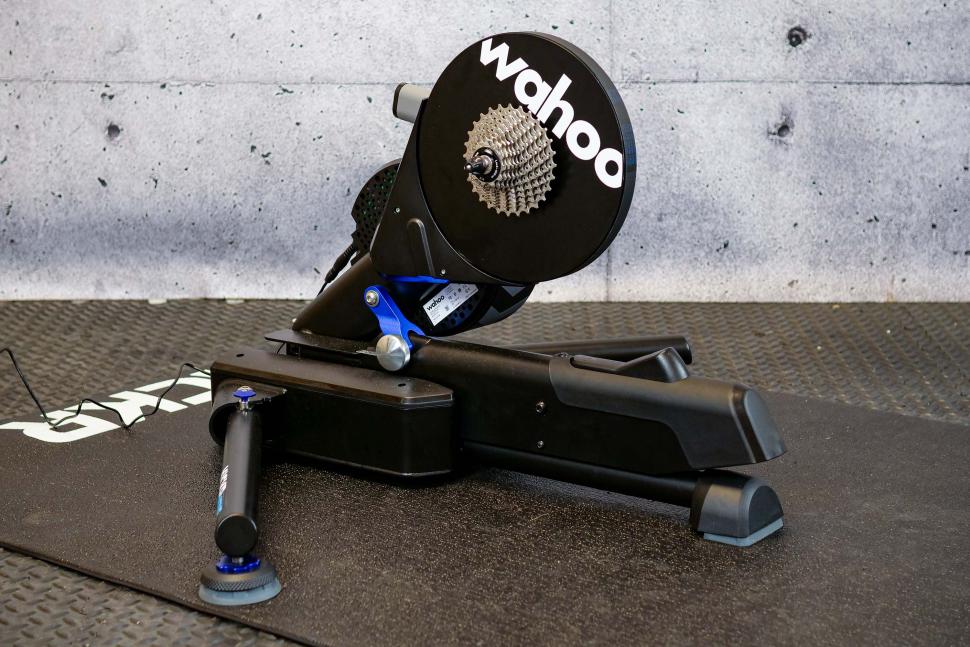 Wahoo Kickr Move Smart Trainer
Wahoo Kickr Move Smart Trainer£1,399.99
VERDICT:
Compact full-motion indoor trainer with an excellent resistance unit, but lateral feel lets it down a bit
Great ride feel
Accurate power
Useful to be able to turn motion on and off
An expensive upgrade over the V6
Side-to-side movement is a bit clanky
Weight:
30,000g
Contact:
At road.cc every product is thoroughly tested for as long as it takes to get a proper insight into how well it works. Our reviewers are experienced cyclists that we trust to be objective. While we strive to ensure that opinions expressed are backed up by facts, reviews are by their nature an informed opinion, not a definitive verdict. We don't intentionally try to break anything (except locks) but we do try to look for weak points in any design. The overall score is not just an average of the other scores: it reflects both a product's function and value – with value determined by how a product compares with items of similar spec, quality, and price.
What the road.cc scores meanGood scores are more common than bad, because fortunately good products are more common than bad.
- Exceptional
- Excellent
- Very Good
- Good
- Quite good
- Average
- Not so good
- Poor
- Bad
- Appalling
The Wahoo KICKR Move is a high-quality trainer based around the excellent KICKR V6 but adding in two axes of movement via a new articulated base. It certainly adds some dynamism to indoor riding, and it's a boon for longer turbo sessions where being stuck in one position can cause discomfort. It's a fairly hefty price hike over the V6 though, and I don't think the lateral movement has been especially well implemented.
Looking to buy a turbo trainer? Our best turbo trainers buyer's guide covers machines from just £130 to over a grand.
Wahoo KICKR Move: It's a KICKR V6 at heart
Okay, first things first: the KICKR Move is, essentially, a KICKR V6 with some clever gubbins added to give it fore-aft movement and a more involving feel. Aaron has already reviewed the KICKR V6 trainer and I see no reason to cover all that ground again: if you want to know all the ins and outs of the trainer performance then there's a full review there, which I recommend you read: Aaron is an elite-level racer, not a C-category chopper like me, and there's loads of analysis.
The TL;DR is this: the KICKR V6 is one of the best trainers you can buy right now, and in fact Aaron called it 'the best turbo trainer on the market'. It has very accurate power reporting (2,200W max, 20% max grade, +/- 1% accuracy) and the ride feel is smooth, accurate and refined. The main development over the previous version is a WiFi mode, which allows you to connect the trainer to your training app over the network, allowing for much quicker power reporting.
On ANT+ and Bluetooth the trainer reports once a second; on WiFi it's up to ten times as quick. The overall build quality is excellent, it's adjustable to a range of wheel sizes, and it comes pre-fitted with a Sunrace 11-28T cassette so you're good to go out of the box, if you're running an 11-speed transmission.
The Axis feet already add a bit of side-to-side compliance, though not as much as a rocker plate (or the Tacx Neo).
Wahoo KICKR Move: so what is new?
What the KICKR Move brings to the party is a new base, and incorporated into the base is a curved track which allows the trainer to glide through a 20cm range of movement front to back, as well as adding some side-to-side freedom. The track curve means that gravity centres you in the middle of the range of motion, and as you reach the limits the angle ramps up so there's no clunk as it tops out.
The track adds width to the trainer, and a substantial amount of weight: it's nearly 30kg, 8kg more than the already heavy V6. So you'll need more space for your trainer setup in both directions, and realistically this is only a trainer to consider if you have a dedicated spot for it, because even though it folds away it's bulky and cumbersome to move. You don't want to be dragging this out of a cupboard in a panic five minutes before your race starts because you were late home. Also: don't put it down on your foot. I did that, so you don't have to.
Clearly if the trainer is moving at the rear axle then the front wheel is moving too. That's fine on a hard floor – I've been using the review trainer on a rubber floor in the shed – but if you're in a room with a carpet then you'll probably need some kind of hard surface for the front wheel to roll on. The KICKR isn't designed to require a riser for your front wheel, but I tend to run one anyway as it puts my turbo bike in a more upright position that I find better for indoor training. If you want to use a riser, you'll need to find one with a channel down the middle without much of a curve, as risers that are designed to hold the wheel firmly will, unsurprisingly, limit the fore-aft motion you get. Or you could just use something flat with a bit of depth. If you're using a KICKR Climb at the front then you'll need the new Weeble base (not its official name) to allow it to rock back and forth.
Talking of limiting the motion, there's a big switch on the mechanism that locks it out. This is useful for getting on and off the bike, and for other things, which I'll come to. It's easy to press with your foot.
Using the Wahoo KICKR Move
First things first: the KICKR V6 is a great trainer in terms of accuracy and ride feel, so there are no issues here in that regard. You get accurate reporting, and the big flywheel gives the trainer a very realistic response. Gradient changes in Zwift are handled quickly and accurately, and the KICKR is excellent when you're doing intervals in ERG mode: there's not too much over-ramping at the start of the interval, and the power tracking is as good as any trainer I've tried. The KICKR also has Wahoo's ERG Easy Ramp functionality which allows you to get back into an interval more easily if you have to stop for any reason.
Steady-state riding feels composed, and when you're attacking the pedals in a sprint it's a very solid unit that'll give you the confidence to really go for it. All the connections were flawless in operation, and the WiFi option does make a genuine difference to the responsiveness of the trainer in game, which for the most part you won't need but in a race makes it just that little bit easier to attack, or respond to another rider's attack. It's not to be discounted.
The KICKR Move has a pretty big range of movement front to back. It's not quite as much as the Saris MP1 platform, which has about 25cm, but it's not far off. For the most part you'll be using a fraction of that; when you're seated the bike is just moving under you a centimetre or two forwards or backwards. It doesn't sound like much but it does help the whole endeavour feel a bit more dynamic, and it means you're not stuck in exactly the same position the whole time, which can lead to issues if you're constantly pressing on nerves.
Wahoo calls it 'next level realism' and says that the bike can 'move naturally' but I'm not sure exactly how much I agree with that. The bike doesn't necessarily move in a way that intuitively feels like outdoor riding; I don't really think about what the bike is doing underneath me in a fore-aft plane when I'm out and about, but because you're encountering gradients and adapting to road conditions you're constantly adjusting your position in relation to the bike, and the Move goes some way to mimicking that. It does improve your overall comfort in the saddle, which is something you start to notice on longer sessions, and because your whole body is slightly more engaged it's a bit more of a full-body workout, in as much as an indoor bike ride ever is.
There are times when the fore-aft motion certainly doesn't feel realistic: in a proper sprint it's distracting, and I found that I'd lock the trainer out for any race where I thought I'd be in danger of sprinting at the end. The switch is big enough that it's possible to do this mid-race if there's any downtime, say on a quick descent near the end where you can freewheel for a couple of seconds. Switching from standing to seated and vice versa also generates a lot of movement, and a bit of rocking back and forth when you sit down.
In terms of side-to-side movement the KICKR Move has Wahoo's Axis feet, which are compressible to allow the trainer to move a bit perpendicular to the bike, but in reality the majority of the movement is from the new base itself which has an amount of lateral play.
And I use the word 'play' deliberately here because really that's what it feels like; while the fore-aft movement has a very precise and engineered feel, the lateral movement just feels a bit sloppy. It doesn't obviously centre and it's not progressive in the way that the fore-aft track is; there's a clunk at either end of the range of movement that you'll certainly feel when you're working out of the saddle or sprinting.
The rocker switch, which locks the front-to-back movement, doesn't affect the lateral movement, so if you don't like it – or just want to choose not to have it for a certain ride – then that's not an option.
The main benefits of building this side-to-side movement into the trainer, rather than having it sit under the wheels in a rocker plate, are two-fold. Firstly, it's more compact. And, more importantly, the pivot point of the bike is raised compared to a rocker plate, which is more in keeping with how the bike moves out on the road, pivoting around the contact points on the road. That certainly feels a bit more natural than a rocker plate. That being said, I still think it's a way behind the feel of the Tacx Neo trainers, which have a more controlled and progressive lateral movement, although they don't offer the same kind of range. I also don't think it's as well-controlled as the Saris MP-1 platform, although that has its own downsides of being very expensive and extremely bulky.
Should you buy the Wahoo KICKR Move?
At £1,399 the Move is a £300 premium over the KICKR V6. That's an expensive trainer, but the V6 is excellent and certainly worth the investment if you're serious about indoor training, especially if that includes racing.
That's a lot less extra expense than a full-motion rocker plate: those start at around £500 and the Saris MP-1 is more expensive than that. It's similar in terms of premium to the Tacx motion plates that will add fore-aft motion to a Tacx Neo, although they didn't review especially well.
If you're sold on having two axes of motion in your training setup then the KICKR Move is a cheaper way to do that (assuming you don't already have a trainer) and it requires a lot less space than a rocker plate, both of which are certainly benefits. The fore-aft movement is well controlled, but I'm less convinced by the lateral movement that's been added, and I think it could be improved. So for me it's a more cautious thumbs-up here than the V6 gets from Aaron. This is a good trainer that packs a lot of movement into a compact package, but there's definitely room for it to get better.
Conclusion
A high-quality piece of kit that adds dynamism to your indoor riding, which is an advantage especially on longer sessions, but I'm not entirely convinced by the trainer's side-to-side movement.
Verdict
Compact full-motion indoor trainer with an excellent resistance unit, but lateral feel lets it down a bit
road.cc test report
Make and model: Wahoo Kickr Move Smart Trainer
Size tested: n/a
Tell us what the product is for and who it's aimed at. What do the manufacturers say about it? How does that compare to your own feelings about it?
With the introduction of fore-aft motion, the KICKR MOVE bike trainer allows your bike to move naturally for a more comfortable and realistic riding experience than ever before.
REAL YOU CAN FEEL
KICKR MOVE delivers an entirely new dimension of ride feel. With built-in, dual axis movement and KICKR's legendary flywheel technology, KICKR MOVE allows your bike to travel freely when powering through indoor rides and workouts. The result is a more engaging, more comfortable and more realistic riding experience than ever before.
NEXT LEVEL EXPERIENCE
From pushing out of the saddle on an explosive attack, to finding your rhythm during a tough endurance effort, when you move, KICKR MOVE moves with you. This freedom mirrors what you feel outdoors, bringing next-level realism and comfort to your indoor rides or lock in your position for focused efforts.
ULTIMATE COMFORT
KICKR MOVE provides next-level comfort to your indoor cycling rides; the movement unleashed by its fore-aft motion reduces fatigue and improves overall efficiency, allowing you to train longer and harder than ever before.
LOCK-OUT OPTION
When you want stability or a dialed-in position, KICKR MOVE features an option to prevent fore-aft movement and lock KICKR MOVE into place.
ERG EASY RAMP
Need to pause the workout for any reason? ERG Easy Ramp™ gets you back into the effort gradually instead of requiring a leg-busting effort to hit your power numbers.
PROFESSIONAL GRADE DURABILITY
Robust steel construction ensures the KICKR stays in place while you crank out the watts and stands up to years of heavy use.
SEAMLESS CONNECTIVITY
Offering a robust 2.4 GHz Wi-Fi connection, up to 3 Bluetooth Connections, a direct connect port and ANT+/ANT+FE-C compatibility, KICKR indoor bike trainers pair to most devices and applications so you have the most control over your training and ride data.
NO LIMITS TRAINING WITH WAHOO X
All Wahoo smart bike trainers and smart bikes come with a trial to Wahoo X, giving you access to SYSTM, a comprehensive collection of structured workouts and training plans, tailored towards your fitness objectives.
Tell us some more about the technical aspects of the product?
NEW - 8" (20cm) fore-aft motion responds to changes in riding tempo
KICKR MOVE base allows for additional side to side movement as well as the adjustable AXIS feet
Auto-calibration and firmware updates
Virtually silent operation
Power Accuracy: +/- 1%
Metrics: Speed, Distance, Power, Cadence
Maximum Power Output: 2200W
Maximum Simulated Grade: 20%
Minimum Simulated Grade: -10% (-8% with CLIMB)
Connectivity: ANT+, ANT+ FE-C, WiFi, Bluetooth, Direct Connect
Includes 11 Speed cassette.
Can switch to accommodate up to 12 Speed
Ready to ride right out of the box.
Rate the product for quality of construction:
9/10
Very solid bit of kit, as evidenced by the 30kg weight.
Rate the product for performance:
7/10
Ride experience of the resistance unit is excellent, but lateral motion lets down the overall package.
Rate the product for durability:
9/10
These trainers last a long time.
Rate the product for weight (if applicable)
7/10
Reassuringly heavy.
Rate the product for comfort (if applicable)
8/10
2-axis motion definitely makes for a more comfortable ride.
Rate the product for value:
5/10
Fairly hefty premium on what's already a top-end trainer.
Tell us how the product performed overall when used for its designed purpose
Pretty well, resistance unit is excellent and front-back motion well implemented, lateral motion less so
Tell us what you particularly liked about the product
Great ride feel, accurate power, useful to be able to turn motion on and off.
Tell us what you particularly disliked about the product
An expensive upgrade over the V6, side to side movement is a bit clanky.
How does the price compare to that of similar products in the market, including ones recently tested on road.cc?
At £1,399 it's about the same as a Tacx Neo with motion plates and less than a KICKR V6 with a full-motion rocker. It's meant to be a top-end product but it's not out of touch.
Did you enjoy using the product? Yes, and also at times no
Would you consider buying the product? I think in reality I'm waiting for the next version where they do some work on the side-to-side mechanism
Would you recommend the product to a friend? Yes, if they were sold on a full-motion trainer setup
Use this box to explain your overall score
Good overall. The guts of the trainer is great, and the fore-aft motion is done well, but there's room for improvement.
About the tester
Age: 50
I usually ride: whatever I'm testing... My best bike is: Kinesis Tripster ATR, Merida Scultura, Dward Design fixed
I've been riding for: Over 20 years I ride: Every day I would class myself as: Expert
I regularly do the following types of riding: road racing, commuting, touring, club rides, general fitness riding, fixed/singlespeed, Mountain Bike Bog Snorkelling, track
Dave is a founding father of road.cc, having previously worked on Cycling Plus and What Mountain Bike magazines back in the day. He also writes about e-bikes for our sister publication ebiketips. He's won three mountain bike bog snorkelling World Championships, and races at the back of the third cats.
Latest Comments
- Bungle_52 2 sec ago
Nice idea but Gloucestershire Constabulary are not interested as exemplified by this prvious NMOTD. Not only was there NFA for the close pass in...
- quiff 5 min 7 sec ago
The war years would work - 1917 (39 mill) or 1942 if you're rounding up (44 mill). Buy yes, it's been an upward trajectory since then.
- mctrials23 11 min 31 sec ago
Flippin heck!
- quiff 24 min 27 sec ago
To be fair, from the absence of centre line it looks like the road might be too narrow for two vehicles to pass without encroaching on the cycle...
- Rendel Harris 30 min 47 sec ago
As a keen cyclist married to a keen cyclist I can testify that there isn't the slightest comparison. The worst unprovoked comments (i.e. when a row...
- hawkinspeter 1 hour 31 min ago
I think black boxes are great for early detection of cognitive decline and/or sight problems. Someone's driving is going to become much less smooth...
- Bigtwin 2 hours 7 min ago
It's a fashion. https://guildford-dragon.com/shalford-driver-who-smashed-shalford-war-me...
- MTL Biker 2 hours 28 min ago
Robin Phans .....
- Rendel Harris 4 hours 8 min ago
Well it would be irresponsible enough if there were only cars and buses, if there are going to be "cars, buses and traffic" that's just suicidal...












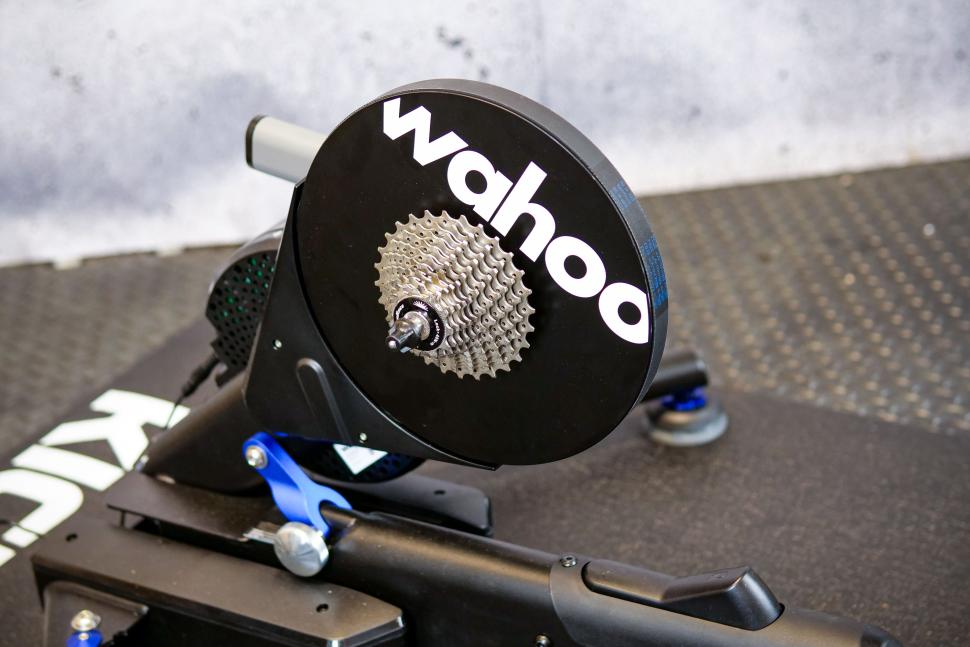



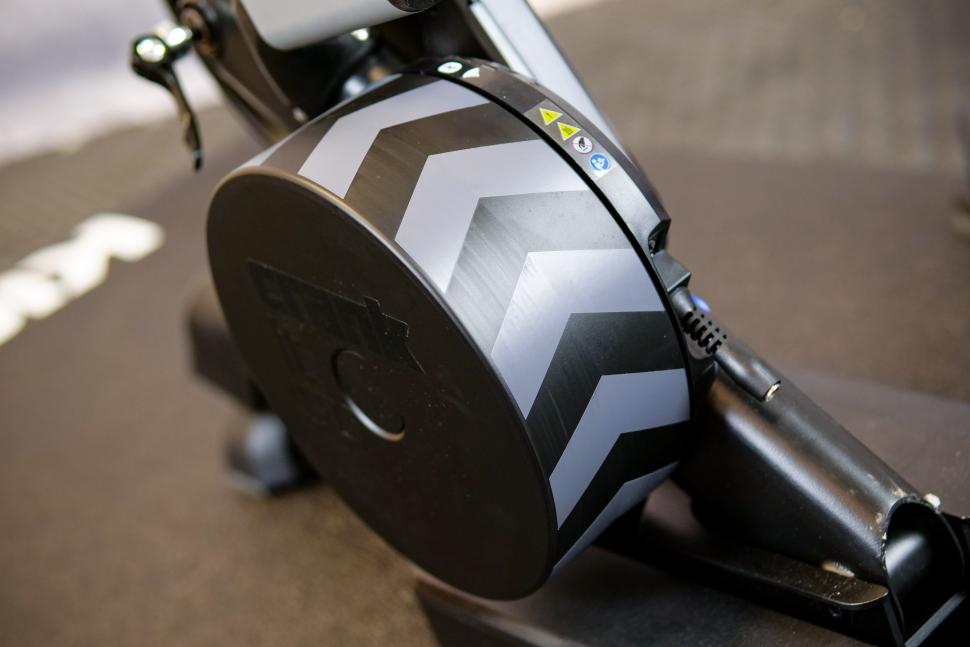


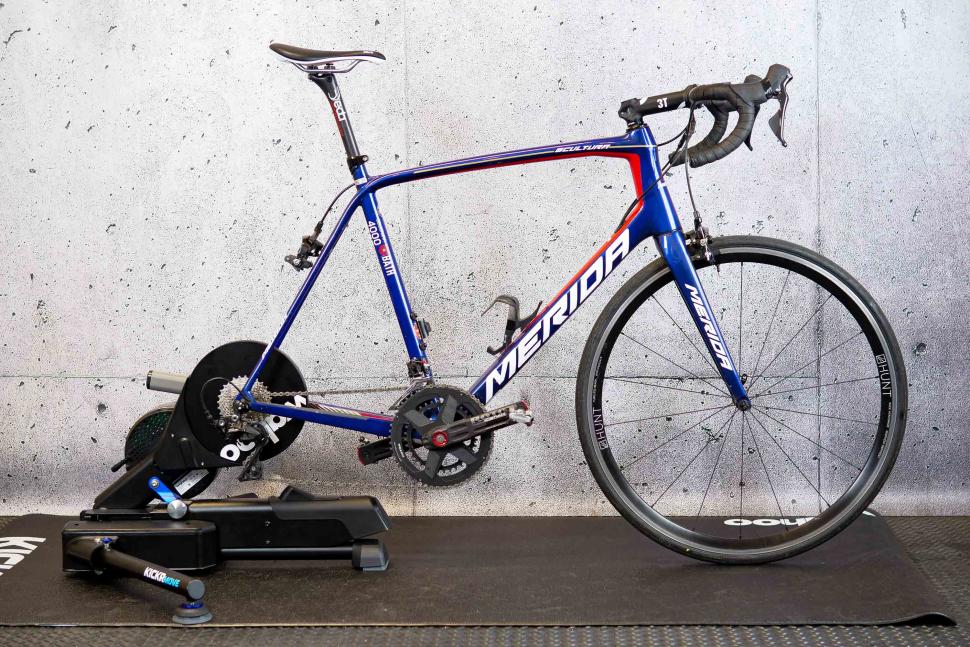
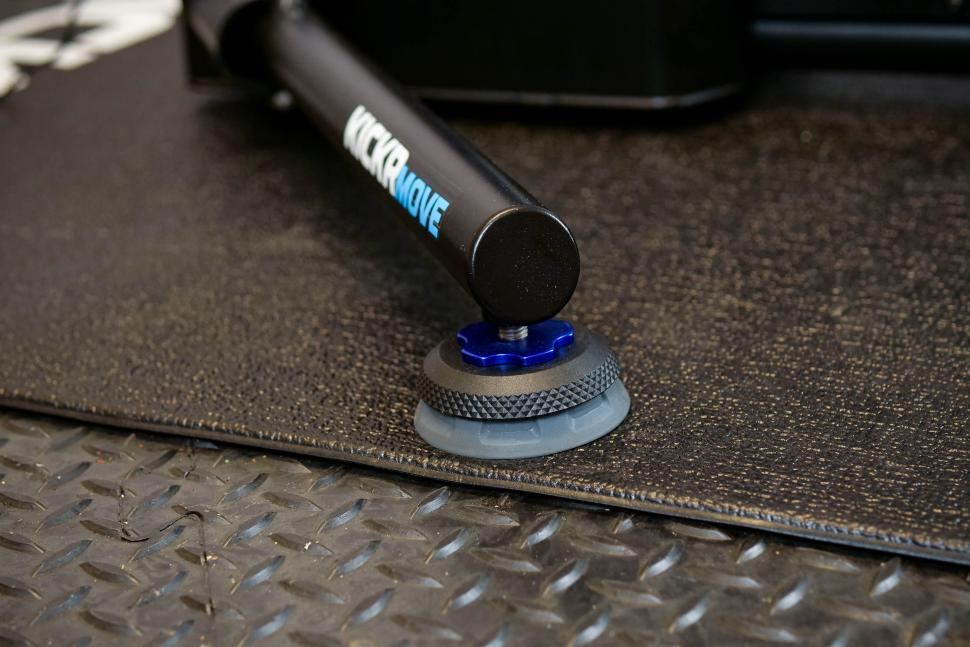

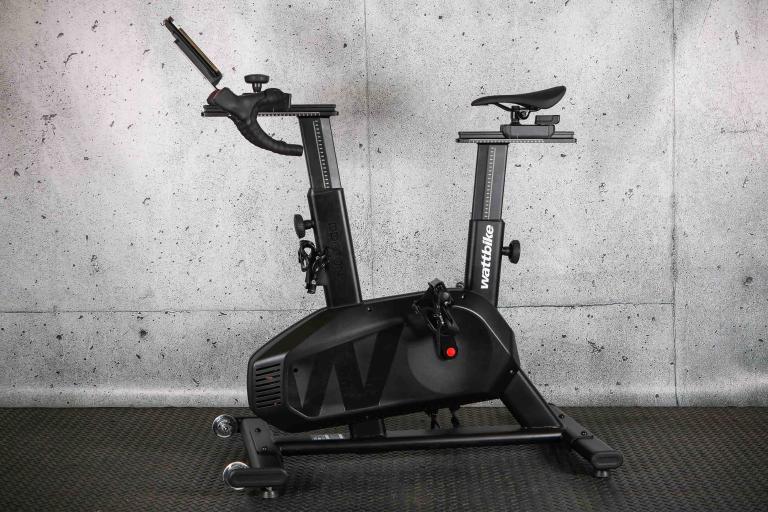
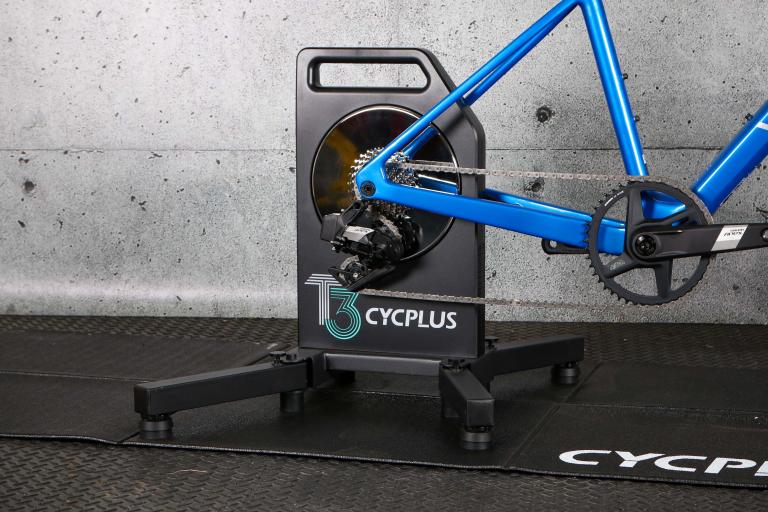
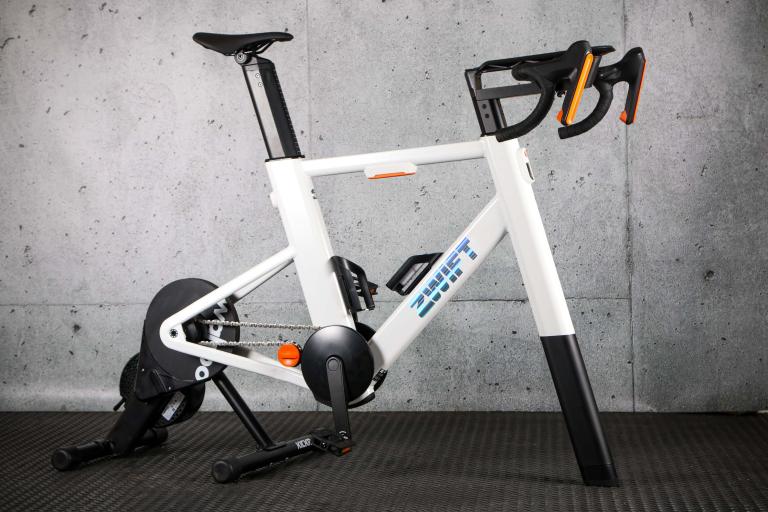

Add new comment
1 comments
Unless you're on rollers indoor riding doesn't feel like riding outside in the big wide world despite manufacturers assertions to the contrary; it's just physics. Rollers however don't appear to be able to offer the same versitile training benefits as a turbo-trainer. The best answer I've found is a rocker plate. An after market product one can use with the trainer you have now would seem to be a better bet than splashing out on a whole new trainer. I use a Turbo-Rocks mini and while it took a couple of sessions to get used to it's a marvellous piece of kit and can just about be stored out of way without the trainer attached when not in use which is a major bonus. It's still not like being outside but it's a lot more comfortable than before.